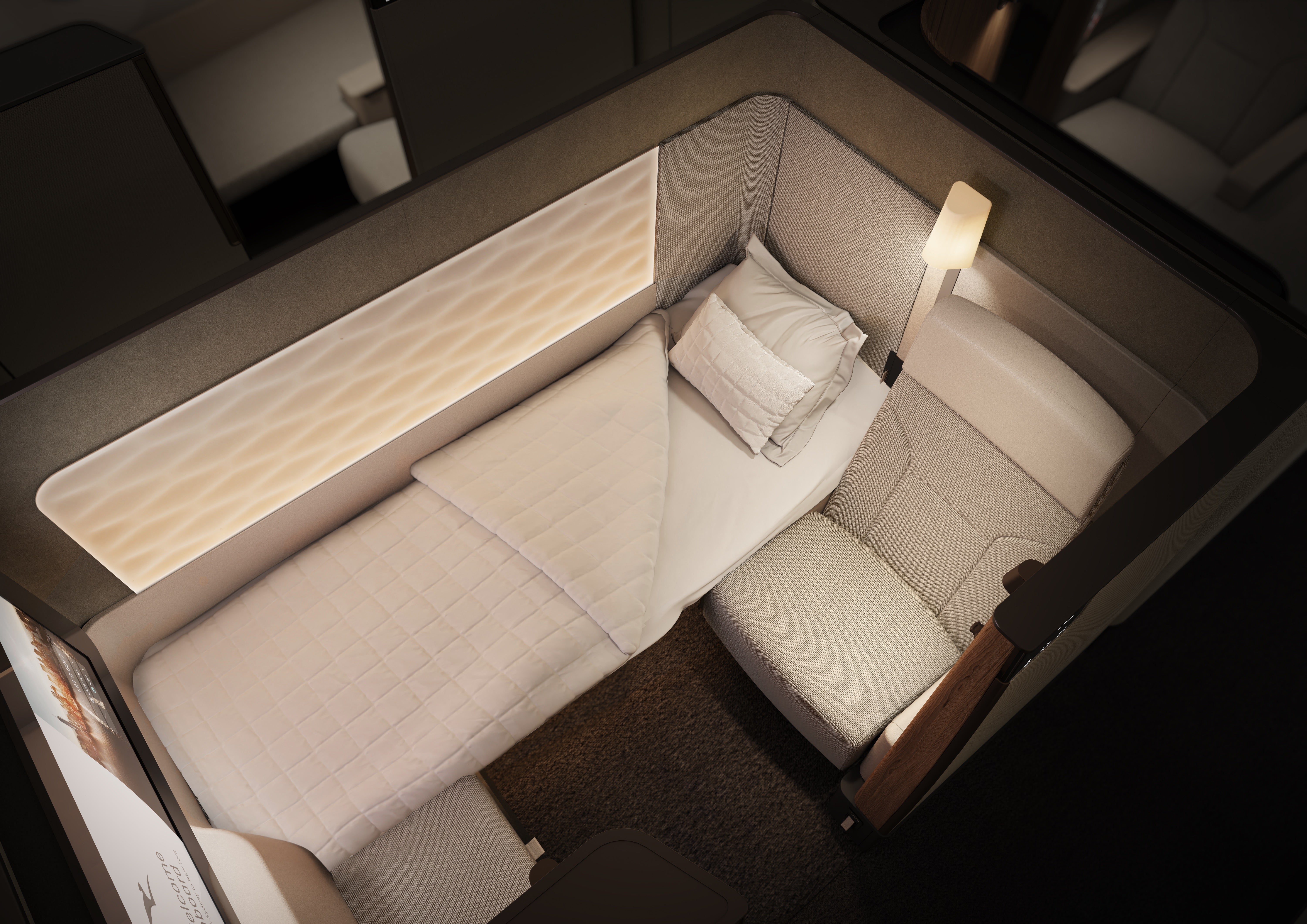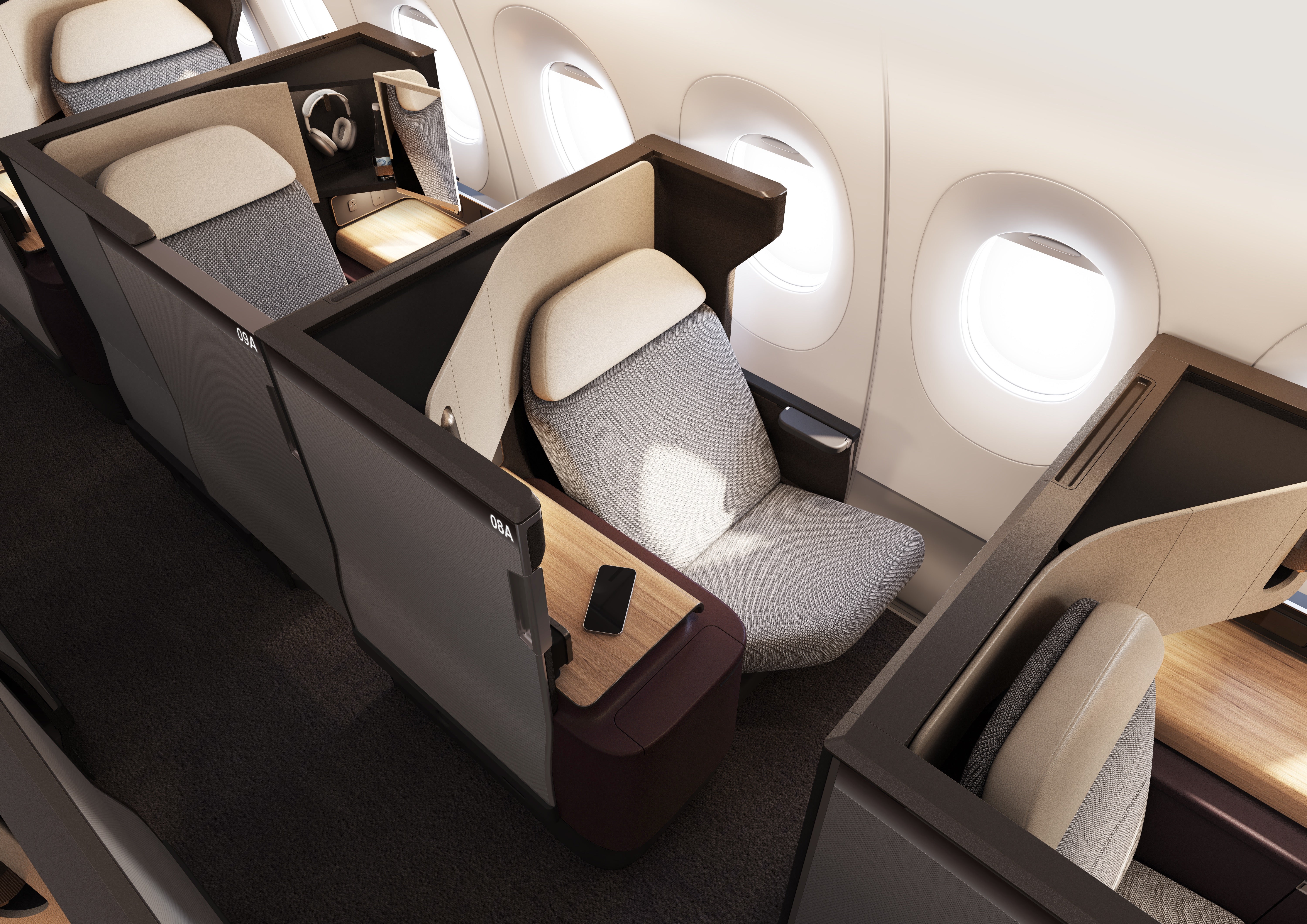First look at Qantas’ Project Sunrise ‘hotel rooms in the sky’
First-class suites will make travellers feel like they’re in ‘a mini boutique hotel room’, says Qantas CEO
Your support helps us to tell the story
From reproductive rights to climate change to Big Tech, The Independent is on the ground when the story is developing. Whether it's investigating the financials of Elon Musk's pro-Trump PAC or producing our latest documentary, 'The A Word', which shines a light on the American women fighting for reproductive rights, we know how important it is to parse out the facts from the messaging.
At such a critical moment in US history, we need reporters on the ground. Your donation allows us to keep sending journalists to speak to both sides of the story.
The Independent is trusted by Americans across the entire political spectrum. And unlike many other quality news outlets, we choose not to lock Americans out of our reporting and analysis with paywalls. We believe quality journalism should be available to everyone, paid for by those who can afford it.
Your support makes all the difference.Qantas has unveiled its first prototype of the new Project Sunrise cabin for first and business class passengers on its long-haul services, which will fly non-stop from Australia to London and New York from late 2025.
Rather than the standard 300-passenger layout, 12 brand-new Airbus A350s will carry 238 travellers in spacious, ergonomically designed cabins that Qantas claims will have the lowest seat count of any A350-1000 in service around the world.
The aircraft will have six first-class suites that the Australian flag-carrier says will make travellers feel like they’re in a “mini boutique hotel room”, while 52 business suites will be installed in a 1-2-1 configuration.
The planes will also feature a wellbeing zone for all passengers, which will be unveiled alongside the 40 premium economy seats and 140-capacity economy cabin in the coming months.
Passengers in first-class suites can enjoy an extra-wide fixed bed, as well as a separate recliner chair, personal wardrobe, a 32-inch ultra-high definition TV and a dining/work table for two.

All 52 business suites will have direct aisle access with sliding doors for privacy, a two-metre flat bed, a cushioned leather ottoman, 18-inch ultra-high definition TV, large dining/work table and generous storage.
Qantas also claims the A350 will use up to 20 per cent less fuel than other aircraft of its size and produce 25 per cent fewer CO2 emissions per seat.
CEO Alan Joyce said the cabins will have “the most sophisticated and thoughtful design of any airline”.
He added that “cutting edge technology with sleep research” would usher in “a new era of travel”.
“We’re building on the customer experience of our extremely popular non-stop flights from Perth to London as we keep working to make it easier to connect Australia with the rest of the world,” he said.

Australian industrial designer David Caon said the design “will work together to significantly improve in-flight comfort, convenience and health and wellbeing and help minimise the old nemesis of jetlag”.
He added: “Every element has been created for Qantas, from the reading light right down to the fabrics, to ensure that passengers spend their journey in refined comfort”.
The news comes after Qantas posted an underlying pre-tax half-year profit of A$1.43bn (£812m) on Thursday in the airline's first return to profit since the coronavirus pandemic started three years ago.
“This is a huge turnaround considering the massive losses we were facing just 12 months ago,” said Mr Joyce.
He said that “strength of demand” had driven such a strong result
“Fares have risen because of higher fuel costs, but also because supply chain and resourcing issues meant capacity hasn’t kept up with demand.
“Now those challenges are starting to unwind, we can add more capacity and that will put downward pressure on fares.”

Join our commenting forum
Join thought-provoking conversations, follow other Independent readers and see their replies
Comments